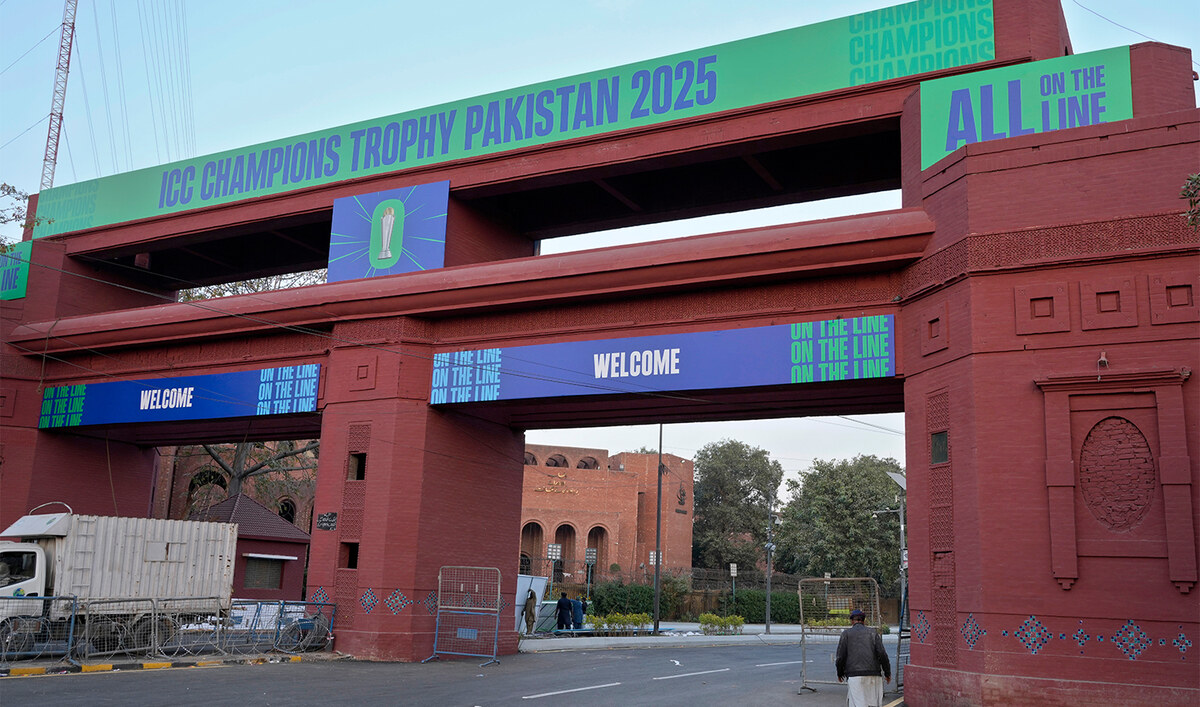ISLAMABAD: The head of Pakistan’s Hajj mission in Saudi Arabia on Wednesday applauded the kingdom for systematically distributing special identification cards among pilgrims and ensuring a functional cooling system at every location amid extreme heat while discussing preparations for the upcoming annual Hajj pilgrimage.
The Saudi government has taken several measures in recent years to facilitate pilgrims and make their spiritual journey more comfortable, including the introduction of Nusuk cards in both physical and digital formats, which contain detailed information about each pilgrim, including their identity and pilgrimage registration details.
These cards are mandatory for all pilgrims to gain access to holy sites and facilitate movement within Makkah, as part of Saudi Arabia’s efforts to streamline the Hajj process and ensure safety by distinguishing registered pilgrims from unauthorized individuals.
“Saudi Arabia is committed to providing all possible services along with maximum comfort and facilities to pilgrims to reduce any inconvenience,” Director General of Hajj Abdul Wahab Soomro told Arab News in a telephone interview from Makkah.
He highlighted the Route to Makkah initiative had greatly benefited Pakistani pilgrims traveling from Karachi and Islamabad, which allows pilgrims to complete the immigration process in their home countries while reducing waiting times at Saudi airports.
“To facilitate the pilgrimage experience for people from across the world, Saudi authorities have taken steps including the enforcement of legitimate Hajj through Nusuk cards, implementation of cooling measures like misting fans and developing shaded areas along with the provision of air-conditioned tents for pilgrims in Mashair,” Soomro said, referring to the general area where Mina, Muzdalifah and Arafat are located and where the pilgrimage rituals are performed.
“Along with these other services included accessibility to free medical services through hospitals and clinics, placement of first aid stations in Mashair and provision of guidance and support via information centers and volunteer staff,” he continued.
The Hajj official noted the transformation of the pilgrimage experience by corporate-style service providers had also led to reduced costs for people and improvement in service quality.
Additionally, the first-come-first-served basis zone allocation in Mina, he pointed out, had prompted Hajj missions and private groups to complete their contracts well ahead of time to secure spaces of their choice.
Pakistan has a Hajj quota of 179,210 pilgrims this year, with around 70,000 people performing the pilgrimage under the government scheme, while the rest will use private tour operators.
Over 85,000 Pakistani pilgrims have arrived in Saudi Arabia, with 55,284 coming under the government scheme and over 30,000 through private operators.
Speaking about Pakistani pilgrims, Soomro said the country’s Hajj mission offered a range of facilities, covering accommodation, transportation, food and medical services.
“In the kingdom, facilities for Pakistani pilgrims include 100 percent accommodation in Madinah Markazia [central], one hospital and nine dispensaries in Makkah, one hospital and three dispensaries in Madinah operating 24/7, 18 ambulances in service, guidance from welfare staff at airports, Haram entry points, bus stations, and Mashair, and dedicated staff at each building’s reception to promptly address pilgrims’ concerns,” he added.
The official said around 154 buildings had been rented for the accommodation of pilgrims in Makkah.
“In Mina, spaces have been reserved in Zones Two and Four,” he added. “Arrangements include tents equipped with amenities like cold water, sofa mattresses, air coolers or air-conditioners and welfare staff also performs duties in Mashair for pilgrim’s facilitation.”
For hassle-free and luxurious transportation, Soomro said 239 buses had been arranged this year, with shuttle service remaining available round the clock.
“A 100 percent train service is provided for Mashair for government scheme pilgrims, while pilgrims under private schemes will utilize bus facilities during Mashair days,” he added.
The top Hajj official said complaints and feedback were managed through designated channels such as the Pak Hajj app, toll-free numbers, WhatsApp and manual visits.
“Authorities promptly resolve these complaints, as a dedicated team also deputed at the call center,” he added.
Pakistan’s Hajj official praises Saudi initiatives for pilgrim safety with Nusuk cards, cooling measures
https://arab.news/4yvdj
Pakistan’s Hajj official praises Saudi initiatives for pilgrim safety with Nusuk cards, cooling measures

- Nusuk cards, available in both physical and digital formats, contain detailed information on every pilgrim
- The Saudi authorities have also ensured functional cooling system at every location amid extreme heat



















